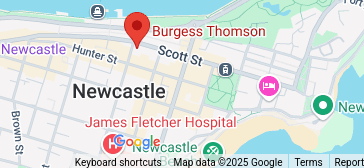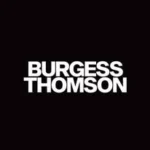Superannuation
Wills & Estate Planning
Secure Your Legacy with a Binding Death Benefit Nomination
At Burgess Thomson, we help clients navigate the often misunderstood link between superannuation and estate planning. While many people assume their superannuation will automatically be dealt with through their will, this is not the case. In fact, superannuation death benefits are not estate assets by default and cannot be managed solely through a standard will.
To ensure your superannuation is distributed according to your wishes after your death, you must complete a valid binding death benefit nomination. This legal document allows you to nominate who will receive your super benefits—commonly referred to as your super beneficiary.
Why a Binding Death Benefit Nomination Matters
A binding death benefit nomination (BDBN) is a formal instruction to your superannuation fund that legally binds the trustee to pay your super to the person or people you nominate. Without a valid nomination, the trustee of your fund decides who receives your death benefit, which may not align with your intentions.
There are two main types of nominations:
- Lapsing nominations, which expire every three years unless renewed
- Non lapsing binding death benefit nominations, which remain valid indefinitely unless updated or revoked
Choosing a non lapsing binding death benefit nomination gives you peace of mind, knowing your wishes will be carried out without requiring regular renewals.
GET A QUICK QUOTE
Enter your details for an obligation free quote.
LEARN MORE
Arrange a consultation with our specialist Wills & Estates Lawyers in Newcastle.
Superannuation and Estate Planning: What You Need to Know
When it comes to superannuation and estate planning, it’s essential to understand how your super interacts with your broader estate strategy. Unlike other personal assets, your super doesn’t automatically fall under your will unless specific steps are taken.
To incorporate your super into your estate plan, you can make a super beneficiary nomination in favour of your legal personal representative (i.e., the executor of your will). This ensures that your super becomes part of your estate and is distributed according to your wishes, as outlined in your will.
However, leaving superannuation in a will requires that you also have a valid binding death benefit nomination to direct the funds to your estate. Otherwise, your super may bypass your will entirely.
How Burgess Thomson Can Help
At Burgess Thomson, we are experts in wills and superannuation and can assist you in ensuring that your estate plan includes the correct documentation to deal with your superannuation effectively. Our services include:
- Preparing and witnessing a binding death benefit nomination
- Advising on non lapsing binding death benefit nomination strategies
- Drafting super clauses for your will to address leaving superannuation in a will
- Ensuring your super beneficiary nomination aligns with your overall estate planning goals
- Reviewing existing super nominations and will documents for consistency and legal validity
We take a tailored approach to superannuation and estate planning, ensuring that your wishes are clear, binding, and protected.
Common Mistakes to Avoid
Many people overlook the importance of nominating a super beneficiary, assuming their will is enough. Unfortunately, this oversight can lead to disputes, delays, and unintended outcomes.
Here are some common mistakes we help clients avoid:
- Relying solely on a will without making a binding death benefit nomination
- Failing to renew a lapsing nomination or update it after major life events
- Not including a superannuation clause in the will
- Naming someone in the will without ensuring the super fund is properly notified through a super beneficiary nomination
We help you avoid these pitfalls by integrating your super into your estate plan from the outset.
Wills and Superannuation: A Complete View
A complete estate plan should account for all of your assets—including super. By addressing both wills and superannuation, we help ensure your family is protected and your estate is distributed exactly as you intended. Whether you wish to leave your super to a spouse, child, or through your will to multiple beneficiaries, the right documentation is critical.
With the right combination of a binding death benefit nomination, a non lapsing binding death benefit nomination, and a legally valid will, your wishes can be upheld without unnecessary complication or conflict.
Take Control of Your Superannuation Today
If you’re unsure whether your current super beneficiary nomination is valid, or you want to discuss leaving superannuation in a will, our team is here to help. We provide clear, expert legal advice tailored to your personal and financial circumstances.
Contact us today to arrange a consultation and make sure your superannuation and estate planning documents are up to date, enforceable, and aligned with your long-term wishes.
fAQ's
What is a binding death benefit nomination?
This is a written document to your superannuation trustee which will set out how you wish for some or all of your superannuation to be distributed. There are two types of Binding Death Benefit Nominations (BDBN) – lapsing or non-lapsing. A lapsing BDBN will have to be renewed every three years whereas the non-lapsing BDBN will remain in place unless it is received by the Trustee or it is updated by yourself.
What happens if you do not make a Binding Nomination?
If you do not make a Binding Nomination or it has expired at the time of your passing, the trustee of your fund has two options. They can either pay all the money directly to your estate or they can decide which of your beneficiaries should receive the money. Other considerations include any tax that might be payable by beneficiaries of your superannuation.
Who can I leave my superannuation money to?
In the event of your death, your super fund must pay a death benefit to one or more people in your life who are eligible. Your eligible super beneficiaries include:
- Your spouse (including de facto and same sex partners) but not a former spouse
- Your children regardless of age
- Anybody who may be financially dependent on you when you die
- Your estate or legal representative.
If you are unsure as to whether the person or people you have in mind are able to be left your superannuation, Burgess Thomson can discuss this with you and provide advice in this regard.




